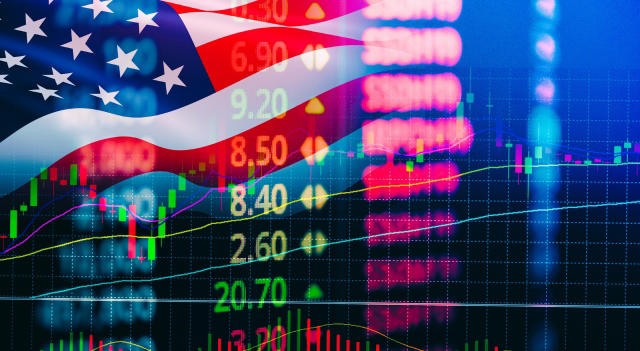In the pre-market trading session on Monday, U.S. index futures indicated a positive start for Wall Street after the previous week, which was marked by significant declines, particularly for the Dow Jones index, making it the worst week of the year so far. However, amidst the market rebound, investors are closely monitoring geopolitical developments following Iran’s recent missile and drone attack on Israel, which has introduced an element of uncertainty to market sentiment.
As of 06:33 AM, Dow Jones futures (DOWI:DJI) were up by 99 points, representing a gain of 0.26%. Similarly, S&P 500 futures showed an increase of 0.43%, while Nasdaq-100 futures registered a gain of 0.53%. Concurrently, the yield on 10-year Treasury bonds stood at 4.569%.
In the commodities market, West Texas Intermediate crude oil for May experienced a decline of 0.90%, settling at $84.89 per barrel, while Brent crude oil for June dropped by 0.78%, hovering near $89.74 per barrel. On the other hand, iron ore traded on the Dalian exchange recorded a notable increase of 2.18%, reaching $116.80 per metric ton.
Turning to the economic agenda for the day, the United States is poised to release key data, including retail sales, industrial manufacturing, business inventories, and federal income tax figures. These indicators will provide insights into the health of the U.S. economy and could influence market sentiment accordingly.
In European markets, the trend was mixed, with the industrial sector experiencing significant gains while the oil and gas sector faced declines, primarily influenced by heightened tensions in the Middle East. Notably, shares of Temenos (CHIX:TEMNZ) surged after refuting allegations of accounting irregularities, while CVC (LSE:CVCG) announced its plans for an IPO on Euronext Amsterdam, aiming to raise 250 million euros, highlighting a long-term growth strategy. Additionally, investors are awaiting industrial production data from the eurozone, which will shed light on the region’s economic performance.
Meanwhile, in Asian markets, most indices recorded declines on Monday amid rising geopolitical tensions and concerns stemming from Iran’s drone and missile attack on Israel. Key economic indicators from China and Japan, including GDP data, trade figures, and inflation statistics, are awaited this week. Additionally, Japan’s major machinery orders in February exceeded expectations, posting a monthly growth of 7.7%, albeit with a slight annual decline of 1.8%. However, the Nikkei 225 fell by 0.74%, reflecting broader market pessimism.
Overall, while geopolitical uncertainties continue to weigh on investor sentiment, cautious relief was observed following statements from the Iranian mission at the UN, suggesting a potential resolution to the conflict. Nonetheless, the markets remain tense amidst threats of military escalation in the Middle East, which could impact energy costs amid efforts to combat inflation.
In summary, the global financial markets are navigating a complex landscape characterized by geopolitical risks, inflation concerns, and volatile commodity prices, with investors closely monitoring key economic indicators and corporate earnings reports for further insights into market direction and sentiment.
